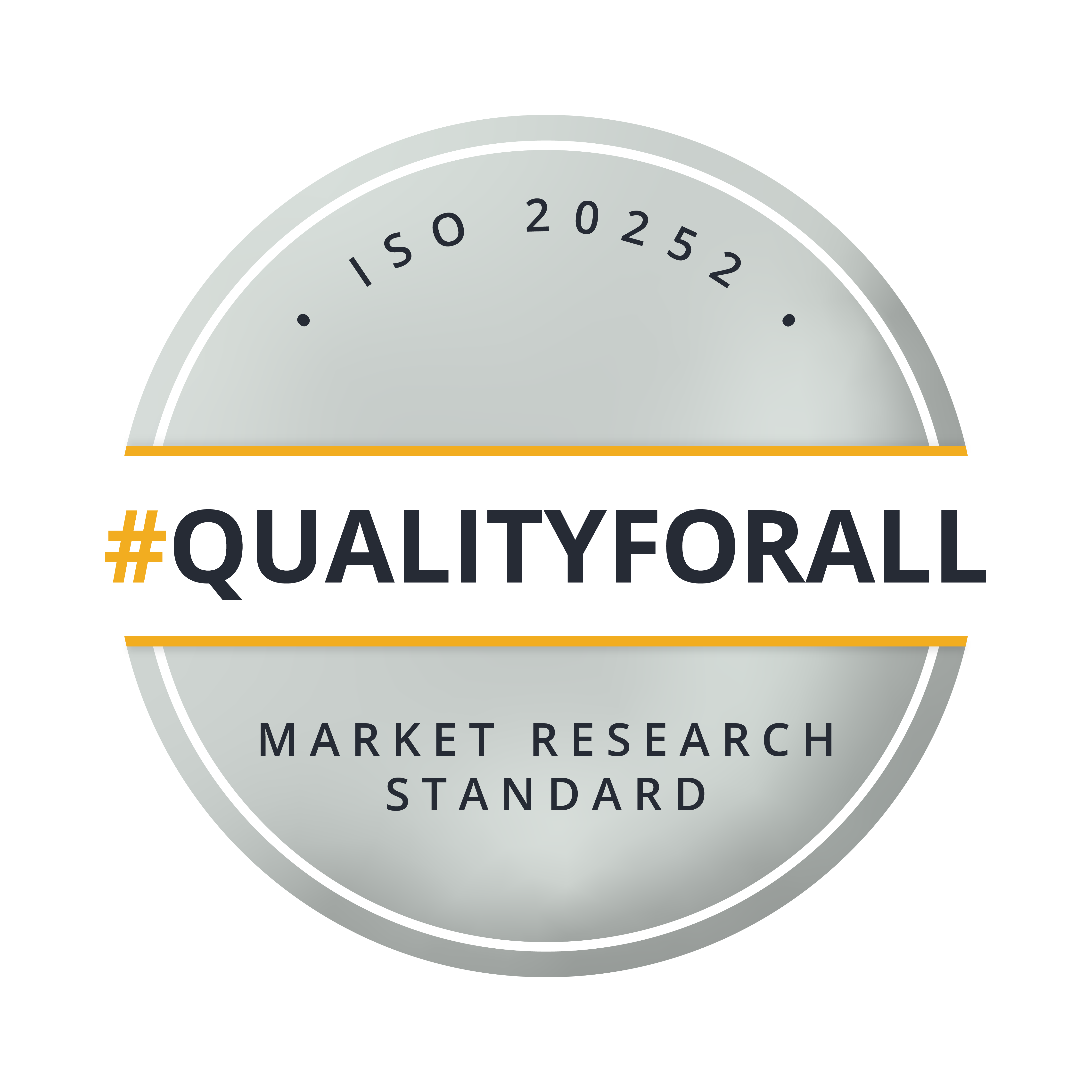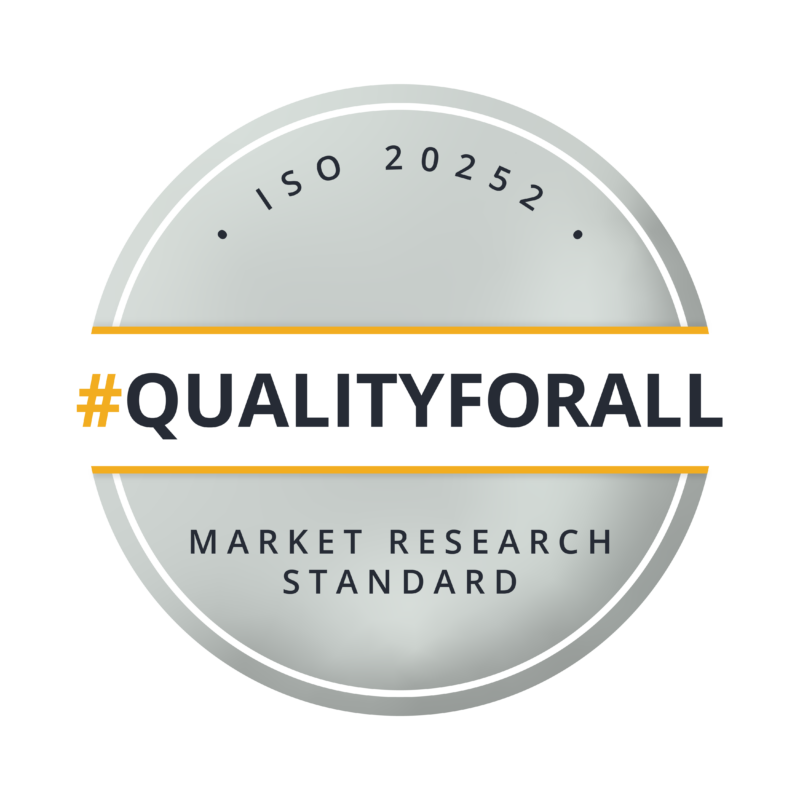
A chat about ISO with Alexandrine de Montera, ISO Quality Officer at Full Circle Research
What is your role in regard to Full Circle Research and ISO certification?
I joined Full Circle Research in September 2022 as Chief Product Officer. During my first two years in the company, I was able to experience first-hand how our ISO certification helps our team define, implement and oversee our robust quality processes; ultimately this is a huge benefit for our clients, and one of our greatest differentiators.
Why did Full Circle choose to become certified to ISO?
Adam [Weinstein] and Nate [Lynch], our CEOs, were on the front lines at some of the world’s first online market research divisions, developing the processes used to help the methodology gain traction. These experiences inspired them to launch Full Circle. They knew they could do online research better—but as a young company, they needed to prove to clients that their product was of higher quality than more established competitors. Nate had heard about the market research standards prior to launch, and made it a priority for their first year in business. By 2014, Full Circle was the first (and only) US-based online consumer sample provider certified to ISO 26362, and kept that distinction until the standard was retired in 2019. At that point, Full Circle became certified to ISO 20252:2109.
Once Full Circle decided to get certified, how much time passed until the company’s audit?
The process was initiated early 2014. It took six months to prepare the “self-assessment and gap analysis” (preparation stage to determine if Full Circle Research was ready for audit). Our full initial audit and certificate were issued in October.
What preconceived notions did you have about ISO certification prior to becoming ISO Quality Manager?
I’ve been familiar with ISO standards and certifications for as long as I can remember! My mother worked at Afnor (Association française de normalization), a Paris-based standards organization and a member body for France at the International Organization for Standardization (ISO), and in my 30+-years’ career, most of the larger companies I have worked for were ISO certified. This led me to believe that ISO certifications applied mostly to very large companies (which isn’t true). Also, while I knew about the value of ISO certification, I had never really been involved in the “behind the scenes” steps of becoming certified for the first time or preparing and going through an annual re-certification audit.
What benefits has Full Circle attained since becoming certified to ISO?
ISO has been part of Full Circle’s DNA since Day 1 and it has been a major differentiator when pitching a new client or at the bidding stage. Clients and brands that prioritize quality know that Full Circle, or any ISO 20252 certified sample provider, will have solid, vetted and annually audited quality processes in place that translate into proven quality products. IYKYK!
What benefits have you experienced personally since becoming associated with ISO?
Being Full Circle’s ISO Quality Officer has deepened my appreciation for the value of standardization in driving trust and excellence in research. Personally, it’s honed my ability to analyze processes critically, foster collaboration and champion data integrity. Working with ISO frameworks has also strengthened my leadership skills, as I’ve had to guide teams through transformative changes while ensuring compliance. Most importantly, it’s rewarding to see the tangible impact of these efforts on client satisfaction and industry reputation.
What surprised you about the ISO process?
The documentation required for certification has been instrumental as we scale. Because our processes are clearly outlined, we can easily and accurately replicate training for new recruits. I experienced this personally during my first days at Full Circle. By reading our extremely detailed ISO Manual, I was afforded a 360-degree view of all our processes by activity. This got me up-to-speed almost immediately, which means that our clients are working with up-to-speed experts right at hire. It’s how we’ve been able to grow so quickly.
What’s an example of ISO being a saving grace?
The documentation required for certification has been instrumental as we scale. Because our processes are clearly outlined, we can easily and accurately replicate training for new hires. This means management doesn’t waste time reinventing the wheel, and clients are working with up-to-speed experts almost immediately. It’s how we’ve been able to grow so quickly.
What is it like working with your auditors?
I have participated in our last two annual audits, and so far, my experience with our CIRQ auditor has been great! I must admit, I was a little nervous the first time, as I thought that auditors would ask tricky questions to try to catch any potential flaws in our systems (even though I knew we were perfectly prepared and compliant). I soon realized that while audits are designed to expose holes in our system, they’re not pass/fail. On the contrary, they’re meant to identify where we can do better and how we can achieve these goals. Our auditor, while being very rigorous, wants us to succeed, which makes the whole experience less intimidating and stressful, and helps us focus on integrating or enhancing processes that are the most efficient, productive and sustainable for us.
What is something you wish you knew prior to starting the process? (If you could tell your “younger” self.)
Don’t be intimidated by ISO. ISO as an organization may be a behemoth, but the 20252:2019 standard is not. Don’t let fear of the unknown stop you from reaping the benefits of the certification. And don’t wait to ask questions. Recognize the professional and personal growth inherent in the opportunity!
What’s the one thing you’d say to persuade a research company to consider certification?
If you care about quality insights, you should care about the market research standard. ISO 20252 certification is the gold standard for ensuring consistent, reliable and high-quality research processes that enhance client confidence and competitive advantage. It demonstrates your commitment to globally recognized best practices, strengthens operational efficiency and provides a clear framework for managing compliance and data integrity. Nothing beats independent, third-party verification for proving that your company is actively committed to best practices—and that can turn into real sales for you.



